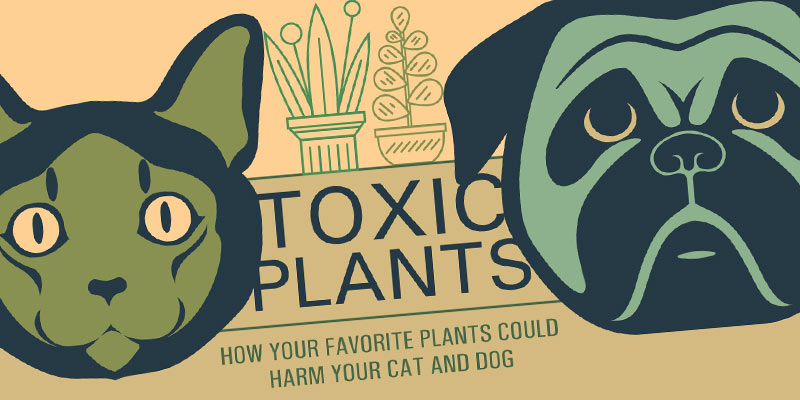
Several seemingly innocent house and garden plants are poisonous if eaten by your cat or dog. If you are a pet owner and you’re worried about your animals, use this infographic to get clued-up on which plants to look out for.
The chart below was published by Pots, Planters & More, and although the company is based in the USA most of the plants on the list are commonly found in the UK and throughout Europe. According to statistics about a quarter of all pets poisoned by non-drug products are poisoned by plants.
Click on the image to view the full-size version.
Infographic by Pots, Planters & More
Tips for keeping your pet safe
If you do have poisonous plants in your house, the RSPCA recommends you take the following precautions:
- Keep an eye on your pets.
- Keep houseplants where pets cannot reach them. Collect dropped leaves/petals.
- Keep pesticides, e.g. rat poison, away from areas pets can access.
- If treating pets with insecticides, separate them from other pets.
- Outdoors, ensure housing and exercise areas are free from, and not overhung by, poisonous plants.
- Ensure your animal’s water supplies cannot become contaminated, and change regularly.
If you think your pet has been poisoned
If your pet does consume a poisonous plant, the RSPCA give the following advice:
- Stay calm. Remove your pet from the source of poison.
- Contact your vet immediately; inform them when, where and how poisoning occurred. If appropriate, take the packaging, plant or substance to the vet. Don’t expose yourself to any harm.
- Follow your vet’s advice.
- Never attempt to treat/medicate pets yourself. Some medicines for humans and other animals may be poisonous to your pet.
- Never attempt to make dogs or cats vomit. Do not use salt water as it’s extremely dangerous.
- If skin/fur is contaminated, wash with mild shampoo and water, rinse well and dry.
Don’t sit around and wait and see what happens – it’s always best to contact your vet immediately.

